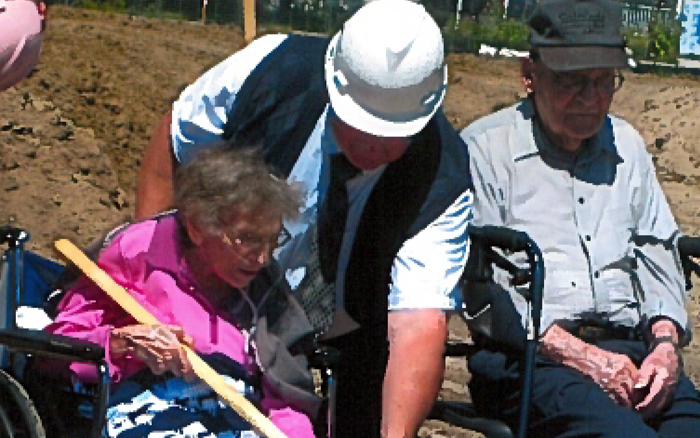In the coming weeks the Colorado State Long-Term Care (LTC) Ombudsman Office, the State Program for All Inclusive Care for the Elderly (PACE) Ombudsman Program and the Legal Assistance Developer (LAD) Program will be moving from their current operation under Disability Law Colorado to operating under the Colorado Department of Human Services (CDHS). The decision to move these programs was a collaborative decision with CDHS. For over 30 years Disability Law Colorado has hosted these programs, providing incredible service and support to Coloradans. This transition has been underway for many months and has been designed to create as little disruption to the programs as possible. It will occur in two phases. Phase 1 began June 12, 2023, and included the move of the State LTC Ombudsman, Deputy State LTC Ombudsman, and State PACE Ombudsman positions to CDHS. Leah McMahon will continue to be the State LTC Ombudsman; Saori Kimura, the Deputy State LTC Ombudsman; and Michelle Jaramillo, the State PACE Ombudsman. Phase 2 will take place on July 1, 2023 and include the transition of the LAD Program from DLC to CDHS. Candise Johnnie within the State Unit on Aging will assume the LAD Program duties.
Check Out the Colorado State Long-Term Care Ombudsman Website: www.COombudsman.org
Colorado Ombudsman Program
Colorado has 54 full- and part-time ombudsmen across Colorado. (approximately 41 full-time equivalent). They are joined by 9 volunteers. These 63 ombudsmen are fully certified.
To attain certification, the ombudsmen must complete 36 hours of New Ombudsman Certification Training which includes history and authority of the LTC Ombudsman program, long-term care regulations, information on working with residents living in long-term care, and most importantly residents' rights. They must also complete 18 hours of continuing education each year.
Why Are Ombudsmen Needed?
While most residents receive good care in long-term care facilities, far too many are neglected and others are victims of psychological, physical, and other kinds of abuse. Licensed facilities are required to allow ombudsmen to enter the facility and visit with residents, without interference from facility staff.
What Do Ombudsmen Do?
The role of the ombudsman is to act as an advocate for the resident and assist the resident in resolving issues related to care, health, safety, or the resident’s rights.
Ombudsmen strive to resolve complaints that range from simple quality of care issues, such as a resident’s preferred time for breakfast, to very serious, sometimes life-threatening, concerns involving abuse and neglect. Other services include:
- Attending family and resident council meetings at a licensed facility
- Providing community education
- Providing training to facility staff
- Providing training to other professional agencies that work with at-risk adults and residents of long-term care facilities
The State PACE Ombudsman
The State PACE (Program for All-Inclusive Care for the Elderly) Ombudsman program was established in 2016 to protect the rights of applicants, participants and those dis-enrolled from services throughout all the PACE organizations in Colorado. The program offers free independent advocacy to navigate the service delivery system within the PACE program, including: access to services; transitions of care; denial of services; grievance and appeals; and timeliness of service delivery. The program serves vulnerable adults 55 and older who live in their own homes, nursing homes or assisted living residences. CLICK HERE to visit the Colorado State PACE Ombudsman webpage!
What is the PACE footprint of work?
The PACE Ombudsman program served over 500 people in 2017 including vulnerable adults enrolled in PACE, family members, community professionals and PACE employees. The PACE Ombudsman program strives to positively impact service delivery systems and quality of care throughout the 10 PACE service centers in Colorado.
What are the Top Five Service Issues?
Colorado’s State PACE Ombudsmen investigate complaints which are identified through interviews with participants, family members, community professionals and PACE staff. The top five service issues in 2017 included: concerns about quality of care; autonomy and choice within the program; access to information regarding how to navigate services; the dis-enrollment process; and staff not responding to requests.
Photo: L to R: Vera Cunningham aged 102, Washington County Commissioner David Foy, and Joe Thereur breaking ground on the Green House Project in Akron, CO.


